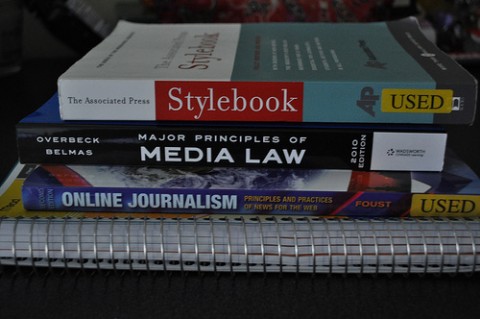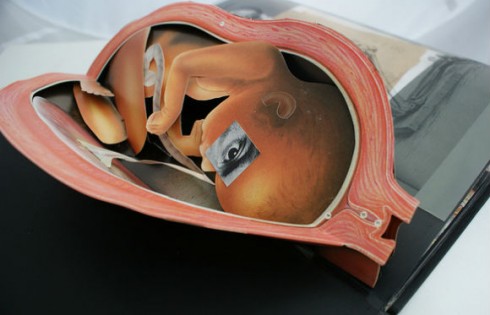
You thought I was talking about prostitution, right?
Nobody would be surprised if the University of California-Berkeley started a graduate degree in sex work. Someone has to serve the next generation of Eliot Spitzers.
But actually, Berkeley faculty in the Graduate School of Journalism just voted to impose its first-ever “supplemental fee” on students – $7,500 a year, according to The Daily Californian.
You think that’s outrageous for a profession that’s basically glorified gossip? The school’s dean pitched a $10,250 fee last month.
This sounds like a deadpan joke to me, but Edward Wasserman was probably genuine – naive, but genuine – when he told the J-school community: “We’re operating under the assumption that we will produce dazzlingly successful journalists.”
Here’s the average journalist’s salary in America, according to PayScale.
Tuition and fees at Berkeley are already nearly $16,000 for California residents and $31,000 for out-of-state and international students, according to The Daily.
Speaking of the $7,500 fee, which the journalism school would keep for itself, Wasserman shows more of that endearing naivete:
Wasserman does not believe that admissions would be impacted by the fee. The reason students attend the journalism school should not be because of a low cost of attendance but because UC Berkeley has the “best journalism school in the world,” he said.
The supplemental fee is also being marketed – how else? – as a way to pay more toward “financial aid and fellowships in an attempt to mitigate the increased cost burden.” Not everyone’s sold:
Susan Cohen, a journalism graduate student, said charging more per student to generate money for financial aid creates an “endless cycle.” She added that many people choose UC Berkeley over other programs, such as the Columbia University Graduate School of Journalism, because of its lower price. Cohen said she would not have attended UC Berkeley’s journalism school with the additional fee.
And because it’s not a college story without a diversity angle, consider this:
Becca Andrews, a second-year graduate student at the journalism school, believes the school’s culture and diversity will be impacted by the fee increase because it may lead to lower accessibility for people from low-income communities.
“If there’s one thing we don’t want in journalism, it’s more white, privileged reporters,” she said, “because then you don’t get diversity in the newsroom … that is necessary for a thriving journalistic community.”
I’m sure many College Fix readers are tired of hearing “privilege” thrown around so much, but Andrews has a point.
Newsrooms tend to be self-reinforcing bastions of socioeconomic privilege. That’s partly because students from well-off families are best able to afford to take the unpaid internships that lead to full-time newsroom jobs, especially in expensive markets (see the excellent book Paying for the Party for some revealing anecdotes about this).
Tucker Carlson, founder of The Daily Caller, talked about this in a college speech last year:
[F]or all the talk of diversity in news rooms, there’s no diversity. Everybody—black, white, Hispanic—went to Princeton. They all grew up on the coast. They’re all secular. They never owned a gun. They never go to church. Everyone has the same attitudes. So in the end, skin color is immaterial.
There are efforts to give underprivileged students a leg up in having the financially stability to take these positions, such as the Knight Foundation’s new initiative with the City University of New York’s graduate journalism program. The College Fix‘s parent organization, the Student Free Press Association, also pays its interns precisely to draw applicants from less privileged backgrounds.
But let’s take a step back and ask: Do you really need a degree, graduate or otherwise, to be a journalist?
Going back to Carlson, here’s what he told those college students:
I don’t care where you went to school. I make a point of hiring people who didn’t go to college. I shouldn’t have gone to college. I learned nothing. I was drunk the whole time! I would have been much better off working in a newsroom as an apprentice, or working in a bank, or having real life experiences, rather than just waiting around to become an adult.
The Poynter Institute, a journalism think tank, shared reader responses to Wasserman’s initial $10,250 fee proposal – here are a few:
- Journalism is a trade. You learn it by doing it.
- At U Michigan, there’s no journalism program, yet students learn on the job at the Michigan Daily. They often major in humanities.
- The only reason for having a masters is if you are a college professor.
Here’s my own journalism education in 30 seconds:
Poli sci major who joined the school paper after failing to make the cut for the top choir. News reporter, assistant editor, columnist. Started an alternative campus paper after graduation. It failed. Went into think-tank PR right out of school. Failed at that.
Got an unpaid internship on Capitol Hill, hated it. Failed to get into the Weekly Standard, my dream, or a prestigious think tank, but got an interview at a tech policy publisher. I knew a bit of tech policy, and my interviewer had also started his own alternative paper in college. Immediate rapport.
Most of our student reporters aren’t studying journalism. Some of them have never written news before. They are learning by doing, and making plenty of mistakes along the way. It’s not learning otherwise.
And they teach me things, too. You heard of this crazy anonymous messaging app called Yik Yak? I’m hooked now.
Greg Piper is an assistant editor at The College Fix. (@GregPiper)
Like The College Fix on Facebook / Follow us on Twitter






Please join the conversation about our stories on Facebook, Twitter, Instagram, Reddit, MeWe, Rumble, Gab, Minds and Gettr.